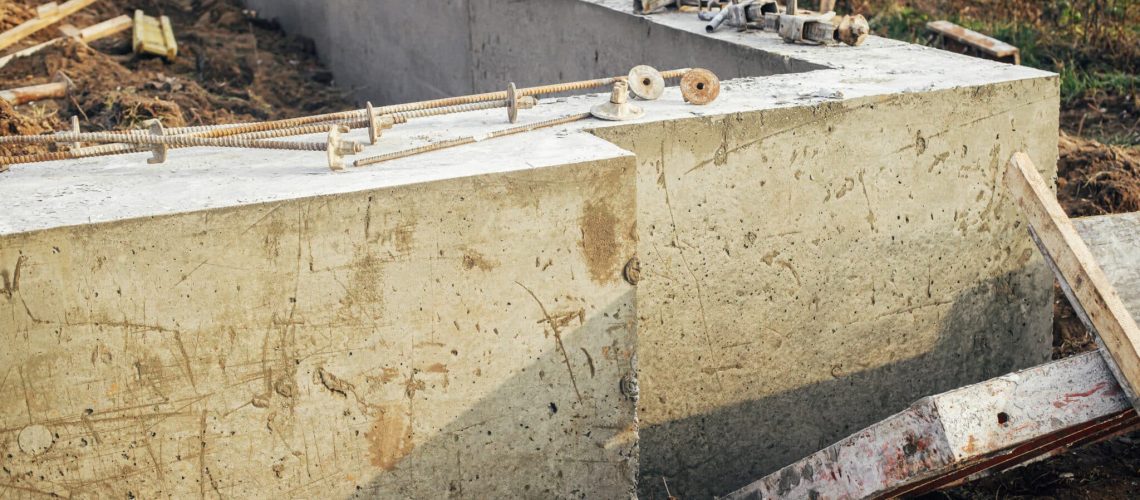When purchasing or selling a home, the value of the property is a vital consideration. However, homeowners often overlook the crucial role played by the foundation in determining this value. Foundation problems can have wide-ranging implications, impacting not just the structural soundness of a house but also its marketability and financial worth. In this extensive examination, we will explore the different ways in which foundation issues can affect property value, providing valuable insights into understanding, mitigating, and navigating this frequently disregarded aspect of real estate.
The Role Of Foundation Health In Property Value:
A home’s foundation serves as the literal and metaphorical bedrock of its value. Beyond providing structural support, a sturdy foundation instills confidence in potential buyers, assuring them of the property’s stability and longevity. Conversely, foundation issues can raise red flags, casting doubt on the home’s overall condition and diminishing its perceived value.
Visible Signs Of Foundation Problems And Their Influence On Property Value:
Cracks in walls, uneven floors, and doors that no longer close properly are telltale signs of foundation issues that can detract from a home’s aesthetic appeal and marketability. These visible manifestations of structural instability serve as glaring reminders of underlying problems, making it difficult for homeowners to command top dollar in the real estate market.
Structural Integrity And Market Perception:
Beyond their visual impact, foundation problems can erode buyers’ confidence in a property’s structural integrity. Even if repairs are feasible, the mere existence of foundation issues can sow doubt in buyers’ minds and deter them from pursuing the purchase. Consequently, homes with foundation problems often languish on the market longer and undergo price reductions to attract buyers.
Financial Implications Of Foundation Repairs:
Addressing foundation issues can be a costly endeavor, further complicating matters for homeowners looking to sell. The financial burden of repairs can reduce the net proceeds from the sale and limit the seller’s ability to negotiate a favorable price. Moreover, buyers may factor in the cost of future repairs when making their purchase offer, further depressing the property’s value.
Comparative Market Analysis: Evaluating Property Values With And Without Foundation Problems:
Comparative market analysis reveals stark discrepancies in property values between homes with and without foundation issues. Properties with compromised foundations typically command lower prices and spend more time on the market compared to their structurally sound counterparts. Moreover, neighboring properties can also experience diminished values due to association with homes with foundation problems.
Appraisal Challenges And Adjustments:
Appraisers face the challenge of accurately valuing properties with foundation problems. To compensate for these issues, appraisers may make adjustments to the property’s valuation, reflecting the perceived risk and cost of potential repairs. However, these adjustments are often subjective and can vary significantly between appraisers, leading to discrepancies in property valuations.
Legal Disclosures And Seller Obligations:
Sellers are legally obligated to disclose any known foundation issues to prospective buyers. Failure to do so can result in legal disputes and undermine trust in the transaction. Full disclosure is not only ethically responsible but also crucial for avoiding future liabilities. Additionally, sellers should consider obtaining professional inspections to uncover any hidden foundation problems and address them proactively.
Strategies For Maximizing Property Value Despite Foundation Issues:
Homeowners can take proactive measures to mitigate the negative impact of foundation problems on their property’s value. Investing in professional repairs, conducting regular maintenance, and obtaining warranties can help reassure buyers and preserve the property’s worth. Furthermore, strategic staging and marketing can help distract from visible signs of foundation issues and highlight the property’s strengths.
Future Market Trends And Considerations:
Looking ahead, future market trends and developments, such as climate change and urbanization, may exacerbate the prevalence and impact of foundation issues. Staying informed about these trends is essential for homeowners and real estate professionals alike. Moreover, advancements in construction technologies and materials may offer innovative solutions for addressing foundation problems and preserving property value in the face of evolving challenges.
Conclusion:
Foundation problems can significantly affect the value of a property, impacting how potential buyers perceive it, how appraisers evaluate it, and ultimately, the outcome of real estate transactions. Homeowners can minimize the detrimental effects of foundation issues and protect their investment by understanding the various factors involved and implementing proactive strategies. Real estate professionals also play a vital role in educating clients and navigating the complexities associated with foundation-related concerns. By working together, we can ensure that both homes and property values have a solid foundation, creating a thriving real estate market for years to come.


